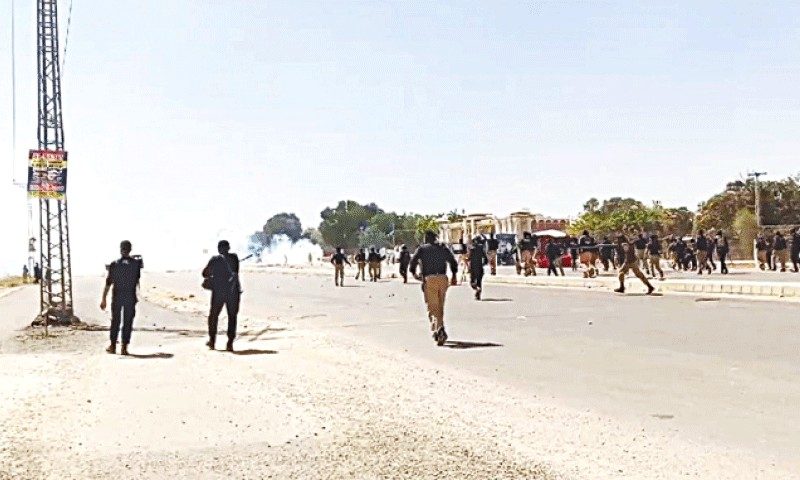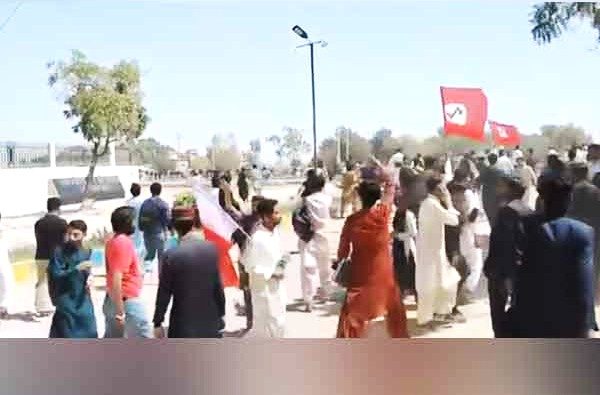
On Students’ Day, hundreds march from university to Indus Highway, demanding an end to the government’s plan to divert Indus water
By Imtiaz Hussain
SUKKUR: Jamshoro police have filed terrorism charges against 37 identified and 63 unidentified students of Sindh University, Jamshoro, following a protest against the construction of six new canals on the Indus River.
The charges, filed under FIR No. 49/2025 by Sub-Inspector Muhammad Salim Panhwar, include 6/7 ATA and multiple sections of the Pakistan Penal Code (324, 354, 341, 147, 148, 149), accusing students of blocking the Jamshoro National Highway, throwing stones at police, damaging vehicles, and inciting fear.
The protest erupted on March 4, coinciding with Students’ Day, as hundreds of students took to the streets, marching from the university’s Central Library to the Indus Highway. Their demand was clear: stop the government’s plan to divert water from the Indus River. The rally turned confrontational as police attempted to disperse demonstrators, resorting to baton charges and tear gas.

Students stood their ground, retaliating with stones, shattering police vehicle windows. Several were injured in the clashes, while an initial five students were arrested on the spot. Subsequent police raids led to more arrests, though pressure from civil society secured the release of some detainees.
“The Indus River is our lifeline,” one protesting student said. “Our demonstration was peaceful, but the authorities responded with brute force. These dictatorial tactics won’t silence us. If anything happens to the arrested students, the university administration will bear responsibility.”
The police crackdown has drawn sharp condemnation from political and nationalist leaders, including representatives of Awami Tehreek, JSQM, JSM, SUP, and GDA. Critics have accused the Sindh government of reviving the oppressive strategies of the past, comparing its actions to the One Unit policy. They argue that the Pakistan Peoples Party, rather than safeguarding Sindh’s resources, is more concerned with preserving its hold on power.
President Asif Ali Zardari’s decision on July 8, 2024, to approve the construction of six new canals, amend the IRSA Act to facilitate the project, and introduce corporate farming has intensified opposition. Protesters claim these moves threaten Sindh’s water rights and deepen long-standing fears of resource exploitation. The police, instead of ensuring the protection of democratic rights, have been accused of acting as political enforcers for the ruling party. As tensions simmer, the situation at Sindh University remains volatile. A heavy police presence looms over campus grounds, but student activists, backed by civil society groups, vow to continue their struggle.



